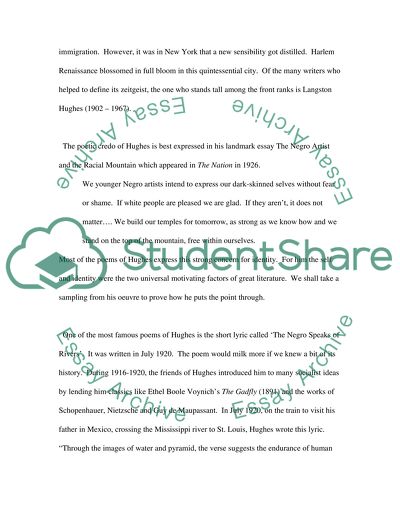Cite this document
(“Langston Hughes: The Harlem Renaissance Genius Essay”, n.d.)
Langston Hughes: The Harlem Renaissance Genius Essay. Retrieved from https://studentshare.org/miscellaneous/1521798-langston-hughes-the-harlem-renaissance-genius
Langston Hughes: The Harlem Renaissance Genius Essay. Retrieved from https://studentshare.org/miscellaneous/1521798-langston-hughes-the-harlem-renaissance-genius
(Langston Hughes: The Harlem Renaissance Genius Essay)
Langston Hughes: The Harlem Renaissance Genius Essay. https://studentshare.org/miscellaneous/1521798-langston-hughes-the-harlem-renaissance-genius.
Langston Hughes: The Harlem Renaissance Genius Essay. https://studentshare.org/miscellaneous/1521798-langston-hughes-the-harlem-renaissance-genius.
“Langston Hughes: The Harlem Renaissance Genius Essay”, n.d. https://studentshare.org/miscellaneous/1521798-langston-hughes-the-harlem-renaissance-genius.


